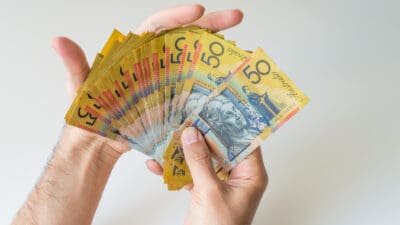ASX investors have been happily watching the S&P/ASX 200 Index (ASX: XJO) make a series of new all-time highs over the past few weeks. Ditto with the the US S&P 500 Index (INDEXSP: .INX). Although most investors like to buy shares when they are cheap, I'd wager there are few investors out there that don't enjoy watching the share market climb to new highs on some level. However, one sector that is certainly not joining the party right now are China shares.
Now, most China shares are not listed on the ASX, instead finding homes on the US, Hong Kong or Shanghai stock exchanges.
But let's take an ASX China barometer in the BetaShares Asia Technology Tigers ETF (ASX: ASIA). This exchange-traded fund (ETF) is one of the top ETFs on the ASX. It holds within it most of the famous Chinese e-commerce companies in Tencent Holdings Ltd (HKG: 0700) and Alibaba Group Holdings Ltd (NYSE: BABA). As well as JD.com Inc (NASDAQ: JD) and Baidu Inc (NASDAQ: BIDU).
Since topping out at $14.36 a unit back in February, this ETF is now down to $9.76 on current pricing. That's a pretty steep fall of more than 30%.
Looking at some of the individual shares listed above and things look even worse. The Tencent share price is down more than 42% from its 52-week high. JD and Alibaba aren't too far behind, while Baudi is out in front, down more than 53% from its February peaks.
So what's going on here?
China shares face CCP wrath
Well, according to a report in the Australia Financial Review (AFR) today, it's the Chinese government that is largely to blame. The Chinese Communist Party (CCP) has reportedly been executing a crackdown on several industries in China. Most prominantly education and tech companies.
The CCP is forcing certain educational businesses to reorganise as not-for-profit groups. It has also banned them from raising capital on the private markets. Further, the government is also bringing in more regulation, including new rules for delivery drivers.
This follows an incident last year, which saw Alibaba ditch a float of its financial division Ant Group. This also saw Alibaba founder Jack Ma retreat from public life after making comments that some interpreted as critical of the central government.
The report also states that the CCP wasn't too happy with the IPO of Chinese ridesharing company DiDi Global Inc (NYSE: DIDI) last month. This reportedly went ahead, even though "Chinese regulators recommended a delay".
Here's what the report stated happened next:
This insubordination was quickly punished. Days after it went public, China's internet regulator ordered Didi to undergo a cybersecurity review, and banned the road-hailing group from accepting new users.
DiDi shares are now trading for less than half of what they were on the company's first day of trading.
Overall, it seems that the CCP is putting its own control of China's largest companies ahead of what might be good for the short-term (and perhaps medium or long term) share market performance of its largest companies.
This is probably something that every ASX investor with an interest in China shares should pay attention to.









